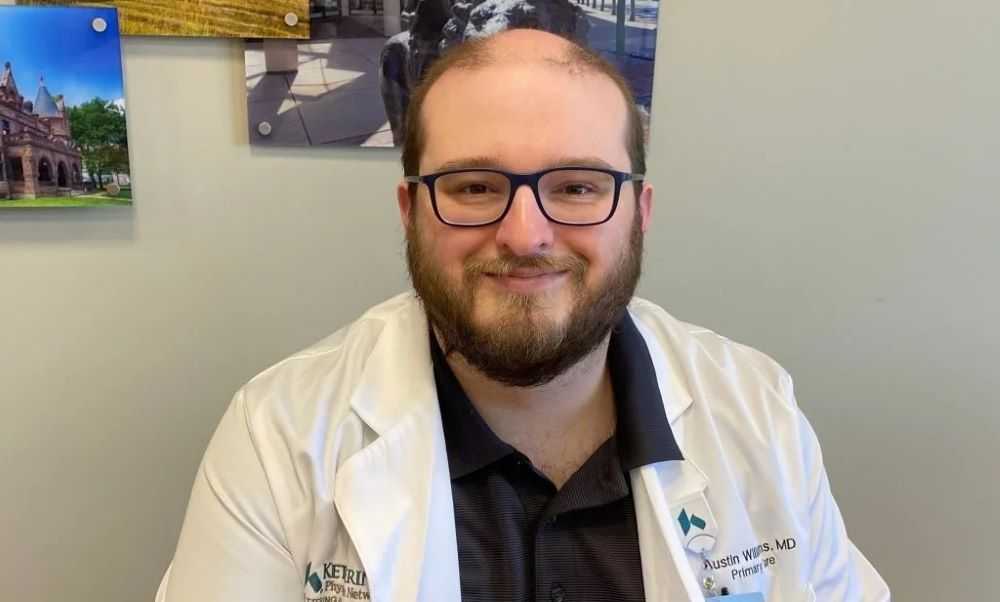Primary Care
Want to learn more about this at Kettering Health?
Prostate cancer is one of the most treatable forms of cancer. In fact, nearly 100% of men diagnosed with prostate cancer can expect to survive five or more years. As long as it’s found in time.
So why don’t more men schedule screenings?
Avoidance won’t cure health problems
For many men, visiting the doctor—even once a year—isn’t on their to-do lists. Some, if they’re honest, may not even know the last time they visited one. “Men are notorious for not getting regular check-ups at a doctor’s office,” said Dr. Austin Williams, a family physician. “I see a lot of guys in their 40s and 50s who haven’t seen a doctor since they were 10 years old.”
Seeing a doctor does not lessen a man’s “manliness,” and they certainly don’t earn a trophy for skipping out on preventative health. Health risks can quickly compound as months turn to years and years turn to decades of avoiding the doctor.
This is especially true for risks like prostate cancer.
Catching it early makes all the difference
Prostate cancer is one of the most common cancers among men. It’s highly treatable and has a high survival rate—if it’s detected and treated early. Depending on your age and risk factors, your doctor may recommend a screening. Screenings are performed typically when they turn 50, even if they’re not having symptoms.
For men with a high risk for prostate cancer (such as African-American men and men with a father, brother, or son diagnosed with prostate cancer before age 65), the discussion should happen at age 45. For men with more than one close male relative (father, brother, son) with prostate cancer diagnosed before age 65, it changes to age 40.
“Screenings include a prostate-specific antigen (PSA) blood test and a digital rectal exam,” says Dr. Jorge Arzola, a urologist. “The screening is repeated every one to two years, depending on the PSA level.”
A primary care physician can complete this quick exam. And a screening doesn’t mean your doctor thinks you have prostate cancer. Preventative medicine is essential, especially when it could catch such a treatable cancer in its early stages.
When to schedule a screening
If you have any symptoms of prostate cancer, talk to your primary care physician as soon as possible. They can help you decide if a screening is best for you.
Symptoms include
- Problems urinating, including a slow or weak urinary stream or the need to urinate more often, especially at night
- Blood in the urine
- Trouble getting an erection
- Pain in the hips, back, chest, or other areas
- Weakness or numbness in the legs or feet
- Loss of bladder or bowel control
These symptoms can be related to other conditions, but it’s better to rule out prostate cancer early rather than allow it to progress to a stage where it’s no longer as easily treated.
More than 2 million men living in the U.S. today are prostate cancer survivors. Early screening and treatment could save your life like it did theirs.









